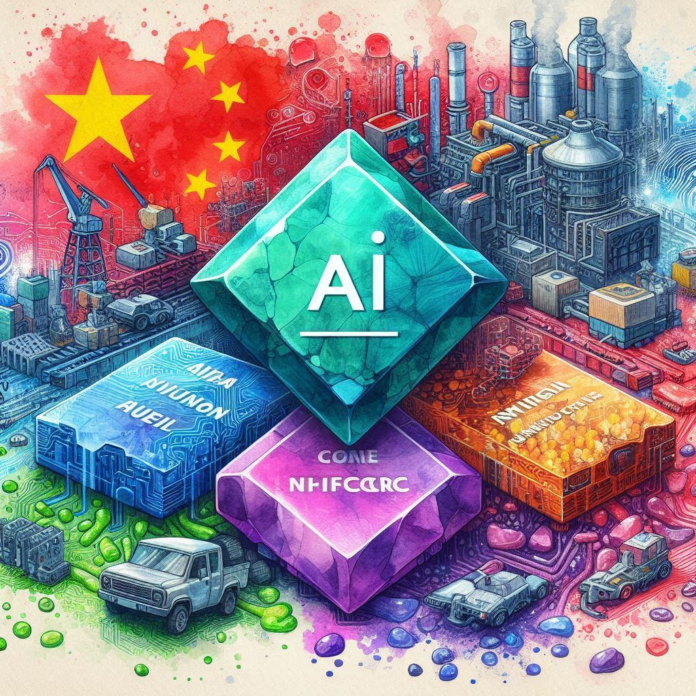US-China Chip war has reached a new heights. China has retaliated against US sanctions and have controlled the export of critical minerals required for Chips manufacturing. Export restrictions on Gallium, Germanium are causing delay in shipments and disturbance in global supply chains. Controlled Supply of the critical materials have resulted in nearly a twofold increase in their prices in Europe over the past year
The Importance of Gallium in Technology
Gallium is a rare metal that plays a critical role in many modern technologies. It is especially important in the production of semiconductors, which are tiny chips found in almost every electronic device, from smartphones to computers.
Gallium is used to make these semiconductors more efficient and powerful. It’s also used in LED lights and solar panels, making it a key player in both technology and clean energy.
The significance of gallium in the tech industry cannot be overstated. Without it, many of the gadgets and systems we rely on would not function as well or might not work at all. This makes gallium a highly sought-after resource, and its supply is crucial for the smooth operation of various high-tech applications.
China’s Control Over Critical Minerals
China is the world’s largest producer of gallium, controlling almost all of the global supply. This dominance gives China significant leverage over the availability and price of gallium. Recently, China has implemented export restrictions on these critical minerals, which has had a major impact on global markets. Although some large shipments of gallium continue, overall exports have dropped by approximately 50 per cent since the restrictions began, leading to fears of future shortages.
US Restrictions on AI Chips is Innovative Mechanism of Sanctions on China
These restrictions on critical minerals began last year and were introduced as a response to US-led actions against Chinese technology and manufacturing. By limiting the amount of gallium that can be exported, China has caused a sharp increase in prices. In Europe, the price of gallium has nearly doubled over the past year due to these controls.
The reason for these restrictions is to safeguard China’s own supply and to use gallium as a bargaining tool in global trade disputes. The controls of critical minerals supply have led to a noticeable drop in the amount of gallium available on the international market, affecting industries that depend heavily on this metal.
China Skirts US Sanctions; Oracle is Powering Tiktok with Nvidia AI Chips
Impact of Critical Minerals Export Control
The export restrictions have created a ripple effect across various industries. Companies that rely on gallium for their products are now facing higher costs and potential shortages. This includes industries involved in making advanced microprocessors, fiber-optic cables, and night-vision equipment. Each of these sectors relies on gallium to produce high-quality and efficient products.
The process to obtain gallium has become more complicated due to the new export licensing requirements on critical minerals. Each shipment of gallium must be approved, and this approval process can take anywhere from 30 to 80 days. This delay has disrupted supply chains and increased the cost of obtaining gallium.
China Defiantly Unfazed by AI Chip Sanctions Imposed by US, Sets Up $47.5 Billion Fund
In addition to gallium, China has also placed restrictions on other important minerals like germanium and antimony. Germanium is used in semiconductors and military equipment, while antimony is used in ammunition and night-vision technology. The restrictions on these materials, along with gallium, highlight China’s significant role in the global supply of critical resources.
Overall, the export controls imposed by China on gallium and other essential materials have caused significant disruptions. Industries around the world are grappling with the effects of these restrictions, which are making it harder and more expensive to access the materials needed for high-tech and defense applications.


